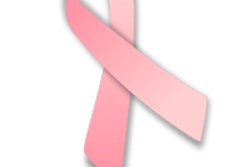A leading breast surgeon remains unconvinced that the benefits of mammography screening outweigh the harms. While deaths may be avoided, any benefit will be more than outweighed by deaths due to the long-term adverse effects of treatment, he stated in an article published online on 23 January in BMJ.
Whether screening mammography's benefits outweigh its harms is a long-time argument among researchers. Studies support both sides of the issue, but nothing definitively tips the scale in either direction to finally put the quarrel to bed. Now Dr. Michael Baum, professor emeritus of surgery at University College London, is the most recent person to attest to screening mammography's harms.
He estimates that for every 10,000 women invited for screening, three to four breast cancer deaths are avoided at the cost of 2.72 to 9.25 deaths from the long-term toxicity of radiotherapy.
His numbers contradict a report by Sir Michael Marmot published in October who was asked to independently review mammography screening in the U.K. and determine the risks of overdiagnosis.
Marmot and colleagues concluded screening mammography prevented 43 deaths from breast cancer for every 10,000 women invited for screening. Overdiagnosis was estimated at a rate of 19%: 129 of the 681 cancers detected in those 10,000 women would have done them no harm during their lifetime. However, those women would have undergone unnecessary treatment, including surgery, radiotherapy, and chemotherapy.
The analysis doesn't take into account improvements in treatment, which will reduce the benefits of screening, nor does it make use of more recent observational data, according to Baum.
With these data included, estimated rates of overdiagnosis as a result of screening increase to up to 50%, he said.
An accompanying editorial by Cliona Kirwan, a clinician scientist in surgical oncology from the National Institute for Health Research, Institute of Cancer, University of Manchester, U.K., said the Marmot report currently provides the best evidence on the benefits and harms of breast screening.
"Given the limitations of the available evidence, the authors correctly conclude that breast screening is worthwhile," she said. "However, it highlights a higher rate of overdiagnosis than has hitherto been communicated to women. The level of risk that is acceptable will vary for the individual woman, and the decision on whether to participate in screening is a personal one."
Health professionals need to help women weigh the benefits and harms of screening by providing them with up-to-date and transparent information, including information on the uncertainties, she added. There needs to be better collection of population data and subsequent modeling.
"Long-term evaluations of randomized controlled trials take decades, so outcome data reflect outmoded treatments," she said. "Such trials have a role only in assessing new screening approaches. The impact of overdiagnosis and overtreatment on morbidity, overall mortality, and quality of life in the context of current treatment regimens needs quantitative assessment."
Considering the rate of overdiagnosis associated with breast screening, and the survival improvements in symptomatic cancers, financial review of breast screening programs is warranted, she said.
"However, the unquantifiable effects of screening, including increased breast awareness, must be taken into account," Kirwan said. "Perhaps the greatest priority for now is to minimize the impact of overdiagnosis by improving individualized treatment to reduce overtreatment."



















